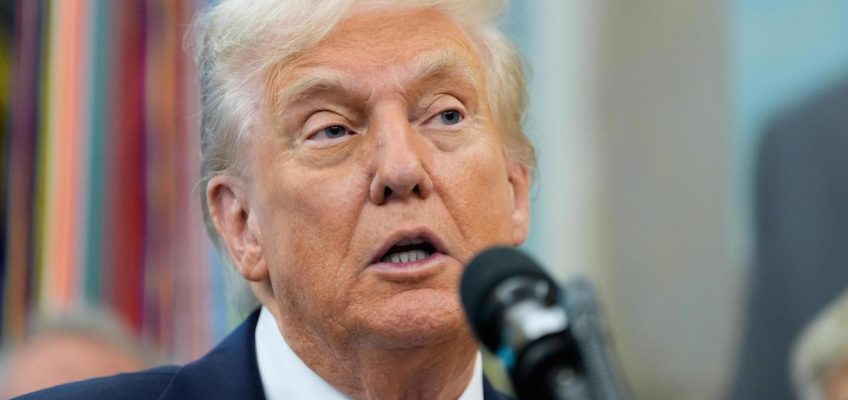By MICHAEL CASEY, Associated Press
BOSTON (AP) — A federal judge ruled Tuesday that the Trump administration’s efforts to deport noncitizens who protested the war in Gaza was unconstitutional.
U.S. District Judge William Young in Boston agreed with several university associations that the policy they described as ideological deportation violates the First Amendment.
“This case -– perhaps the most important ever to fall within the jurisdiction of this district court –- squarely presents the issue whether non-citizens lawfully present here in United States actually have the same free speech rights as the rest of us. The Court answers this Constitutional question unequivocally ‘yes, they do,’” Young, a nominee of Republican President Ronald Reagan, wrote.
An email to the Homeland Security department for comment was not immediately returned.
The ruling came after a trial during which lawyers for the associations presented witnesses who testified that the Trump administration had launched a coordinated effort to target students and scholars who had criticized Israel or showed sympathy for Palestinians.
“Not since the McCarthy era have immigrants been the target of such intense repression for lawful political speech,” Ramya Krishnan, senior staff attorney at the Knight First Amendment Institute, told the court. “The policy creates a cloud of fear over university communities, and it is at war with the First Amendment.”
Lawyers for the Trump administration put up witnesses who testified there was no ideological deportation policy as the plaintiffs contended.
“There is no policy to revoke visas on the basis of protected speech,” Victoria Santora told the court. “The evidence presented at this trial will show that plaintiffs are challenging nothing more than government enforcement of immigration laws.”
Related Articles
Pfizer agrees to lower prescription drug costs for Medicaid in a deal with Trump
Here are some effects of a government shutdown if Congress, Trump don’t reach a deal
Groups press for release of special counsel Jack Smith’s report on Trump’s classified documents case
A weakened and isolated Hamas faces pressure to accept Trump’s peace plan for Gaza
Florida officials gift prime Miami real estate for Trump’s presidential library
John Armstrong, the senior bureau official in the Bureau of Consular Affairs, testified that visa revocations were based on longstanding immigration law. Armstrong acknowledged he played a role in the visa revocation of several high-profile activists, including Rumeysa Ozturk and Mahmoud Khalil, and was shown memos endorsing their removal.
Armstrong also insisted that visa revocations were not based on protected speech and rejected accusations that there was a policy of targeting someone for their ideology.
One witness testified that the campaign targeted more than 5,000 pro-Palestinian protesters. Out of the 5,000 names reviewed, investigators wrote reports on about 200 who had potentially violated U.S. law, Peter Hatch of ICE’s Homeland Security Investigations Unit testified. Until this year, Hatch said, he could not recall a student protester being referred for a visa revocation.
Among the report subjects was Palestinian activist and Columbia University graduate Khalil, who was released last month after 104 days in federal immigration detention. Khalil has become a symbol of Trump’s clampdown on the protests.
Another was the Tufts University student Ozturk, who was released in May from six weeks in detention after being arrested on a suburban Boston street. She said she was illegally detained following an op-ed she co-wrote last year criticizing her school’s response to the war in Gaza.


Leave a Reply